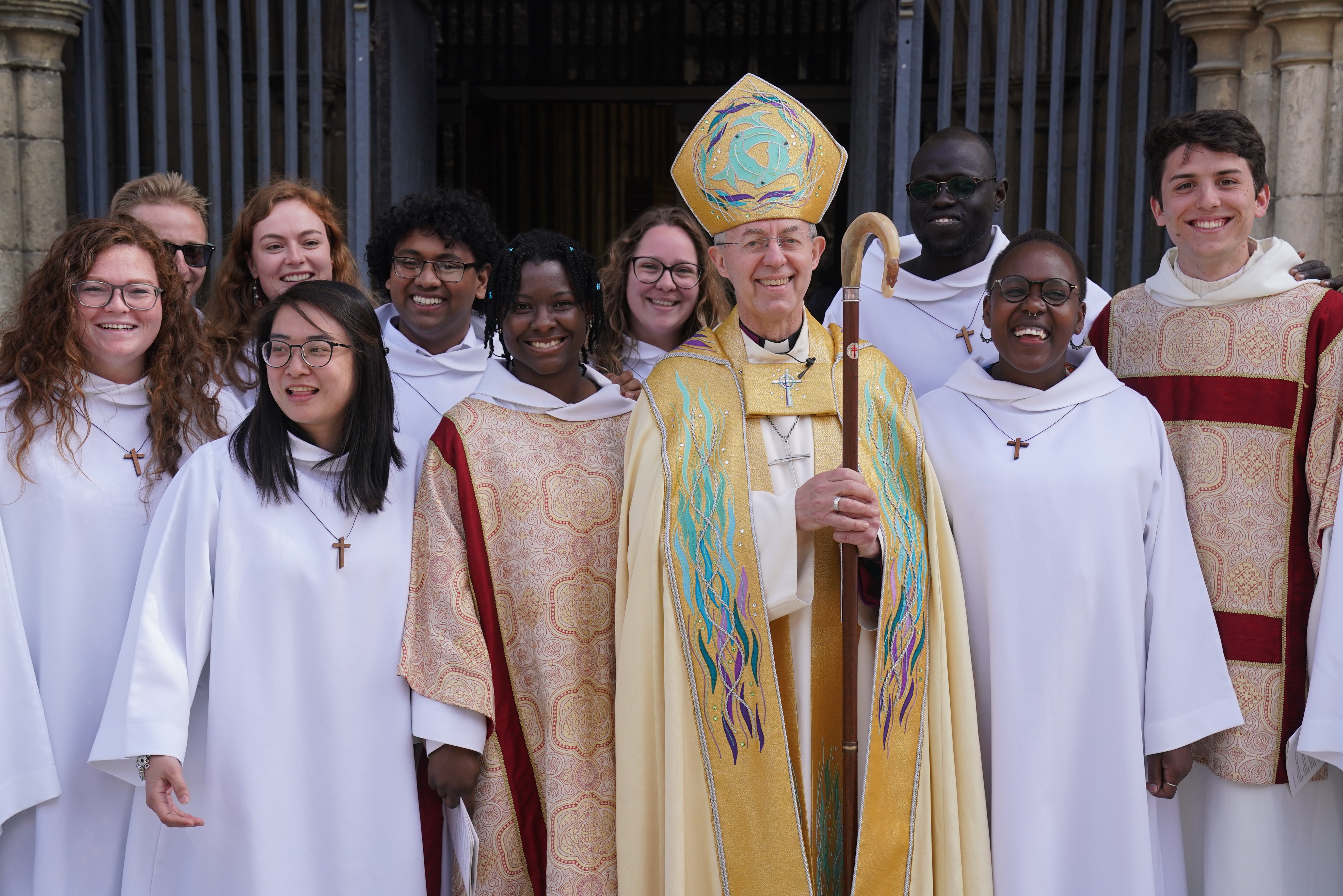
The Archbishop of Canterbury Justin Welby has again criticised the Government’s new migration policy and warned that the Church of England “is not a passive observer of migration policy”.
Earlier this month, the Government announced the new immigration policy, which will see asylum seekers who cross the Channel in small boats sent for processing to Rwanda, where they will have the right to apply to live.
The Archbishop previously said the Government’s policy would not stand up to the scrutiny of God, while Prime Minister Boris Johnson accused Mr Welby of being “less vociferous” in his condemnation of Russian President Vladimir Putin than he was in his attack on the policy.

Writing in The Daily Telegraph, Mr Welby said: “Some of my fellow bishops, clergy and worshippers came to the UK escaping persecution or conflict.
“We welcome and serve asylum seekers at every level of society – from providing housing, food banks, social support and friendship, to scrutinising legislation in the Lords.”
He added: “Government and Church are not the same, but we must surely all want to put humanity and fairness at the heart of our asylum system.
“That is why the Church has called for safe and legal routes for asylum seekers, making visas available for humanitarian reasons, and helping families to be reunited.”

Mr Welby said there were “serious ethical questions” about using “deterrence” to stop asylum seekers reaching the UK.
“Like many, I oppose sending vulnerable and traumatised people more than 4,000 miles away without their consent, and paying another country to take them in,” he said.
“People who would have been offered refugee status in the UK will be shipped out without their case being heard – including those with family ties or other links with Britain.”
The Rwanda agreement has also been criticised by senior Tories and Labour since it was announced.
Conservative former prime minister Theresa May has questioned the “legality, practicality and efficacy” of the plan.
Labour leader Sir Keir Starmer told the BBC’s Sunday Morning programme the plan was unethical, unworkable and costly.
He added: “I also can’t help feeling, I’m afraid, that there is a bit of distraction tactics in this to stop everybody talking about the wrongdoing of the Prime Minister and the cost-of-living crisis.”
Ms Patel, however, said the deal was concerned with trying to “empower” asylum seekers.
“It’s always been a partnership based on resettlement, rebuilding lives. Investing in people,” she told the Telegraph.
I also can’t help feeling, I’m afraid, that there is a bit of distraction tactics in this to stop everybody talking about the wrongdoing of the Prime Minister and the cost-of-living crisis.
Tory Party chairman Oliver Dowden said some of the criticism being levelled at the policy in the media had failed to “scrutinise what the alternative is” if action was not taken to tackle Channel crossings.
“The danger is that more lives will be lost and more criminal gangs will be enriched,” he told Sky News’ Sophy Ridge On Sunday programme.
Mr Dowden added: “I don’t think it’s xenophobic to criticise the Government’s plans.
“But I do think that, in terms of some of the media reaction to this, it is not accepting that a) action had to be taken and b) I think that the situation in Rwanda… Rwanda is a country that is growing rapidly and sometimes some of the views about Rwanda are outdated in that context.”







